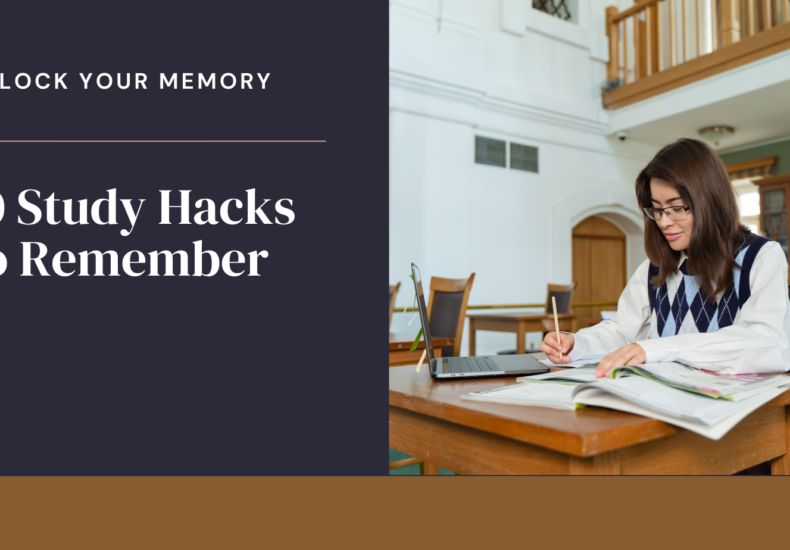
10 Study Hacks to Improve Memory and Retention
Introduction
Studying effectively is a skill that can be developed with the right techniques. Many students struggle with retaining information, but incorporating strategic study hacks can significantly improve memory and comprehension. This article explores 10 powerful study hacks to enhance learning and retention.
1. Use Active Recall
Active recall is a technique where students test themselves on the material instead of passively rereading it. By retrieving information from memory, learners reinforce their understanding and make information easier to recall during exams.
2. Implement Spaced Repetition
Spaced repetition involves reviewing information at increasing intervals over time. This method prevents cramming and enhances long-term retention by strengthening memory connections.
3. Teach Someone Else
Teaching a concept to another person forces students to process and articulate the information clearly. This technique not only deepens understanding but also highlights any gaps in knowledge.
4. Create Mnemonics and Memory Aids
Mnemonics, acronyms, and rhymes help learners encode complex information into simple and memorable patterns. These aids make it easier to recall facts and concepts during exams.
5. Utilize Mind Maps and Visual Aids
Mind maps and diagrams help organize information visually, making it easier to understand relationships between concepts. This technique is particularly useful for subjects with interconnected ideas.
6. Optimize Study Sessions with the Pomodoro Technique
The Pomodoro Technique involves studying in short bursts (typically 25 minutes) followed by a 5-minute break. This method enhances focus and prevents mental fatigue.
7. Engage Multiple Senses
Incorporating different senses, such as reading aloud, writing notes by hand, or using flashcards, strengthens memory retention. Multisensory learning stimulates different areas of the brain, making information easier to remember.
8. Get Enough Sleep and Rest
Sleep is essential for memory consolidation. Students who get adequate rest can process and store information more effectively, leading to improved retention and cognitive function.
9. Use Real-World Connections
Relating new information to real-world examples or personal experiences enhances comprehension and recall. When students see relevance in what they learn, they are more likely to remember the material.
10. Stay Physically Active and Manage Stress
Exercise improves blood flow to the brain, boosting cognitive function. Additionally, stress management techniques such as meditation and deep breathing help students stay focused and retain information better.
Conclusion
Effective studying goes beyond reading textbooks. By implementing these study hacks, students can optimize their learning experience, improve retention, and perform better academically. The key is to experiment with different techniques and find what works best for individual learning styles.
You may also like
You may be interested
The Importance of Critical Thinking in Modern Education
Introduction In today's fast-paced and information-driven world, critical thinking has...
STEM vs. STEAM: Understanding the Difference and Benefits
Introduction Education in science, technology, engineering, and mathematics (STEM) has...
The Benefits and Challenges of Online Learning
Introduction Online learning has transformed education, providing flexibility and accessibility...
Archives
Calendar
| M | T | W | T | F | S | S |
|---|---|---|---|---|---|---|
| 1 | 2 | 3 | 4 | 5 | 6 | |
| 7 | 8 | 9 | 10 | 11 | 12 | 13 |
| 14 | 15 | 16 | 17 | 18 | 19 | 20 |
| 21 | 22 | 23 | 24 | 25 | 26 | 27 |
| 28 | 29 | 30 | ||||
Leave a Reply